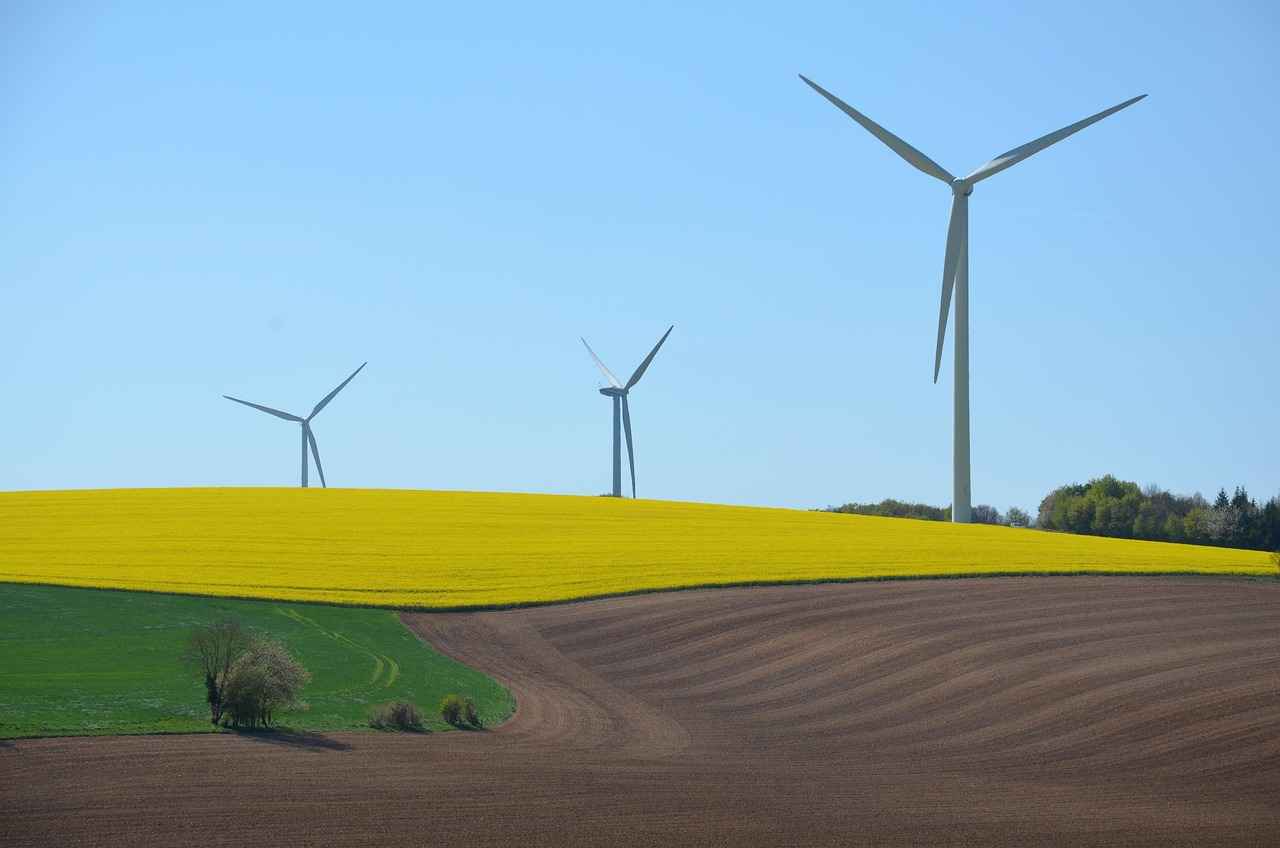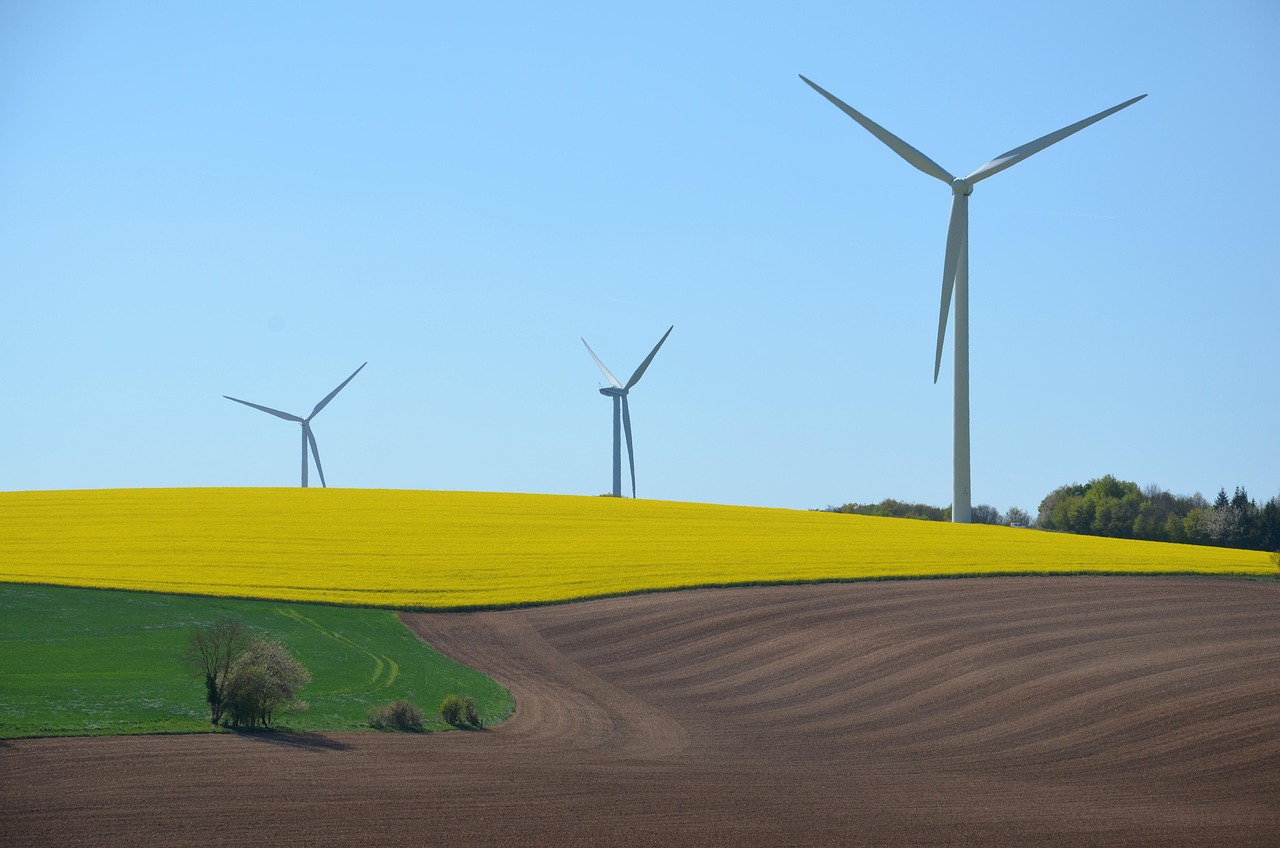This article delves into the innovative strategies that West Bengal is implementing in the realm of renewable energy. By highlighting key initiatives, policies, and projects, the state is positioning itself as a leader in sustainable energy solutions, paving the way for a greener future.
Overview of Renewable Energy in West Bengal
West Bengal has made remarkable progress in the renewable energy sector, with a strong emphasis on solar, wind, and biomass sources. The state’s commitment to sustainable energy development is evident through various projects aimed at reducing carbon emissions and promoting clean energy.
Government Policies Supporting Renewable Energy
The state government’s policies have played a crucial role in fostering renewable energy growth. This includes a robust legislative framework and various incentives that attract investments in clean energy initiatives.
- Incentives for Solar Energy Development: The West Bengal government provides numerous incentives for solar energy projects, such as subsidies and tax exemptions, significantly boosting solar adoption.
- Net Metering Policies: Net metering allows consumers to generate their own solar power and sell excess energy back to the grid, benefiting both residents and the environment.
- Solar Parks and Initiatives: The establishment of solar parks has been instrumental in enhancing solar energy production across the state.
Wind Energy Potential in West Bengal
Wind energy is another vital component of West Bengal’s renewable energy strategy. The state is actively exploring its wind energy potential through various ongoing projects designed to harness this resource effectively.
Biomass Energy Projects in West Bengal
Biomass energy is integral to West Bengal’s renewable energy strategy. Several projects focus on biomass energy, contributing to rural development and energy security.
- Community-Based Biomass Initiatives: Local community engagement is essential for the success of biomass projects, promoting sustainability and self-sufficiency.
- Challenges in Biomass Energy Implementation: Despite its potential, biomass energy faces challenges such as supply chain issues and technology gaps that need addressing.
Impact of Renewable Energy on Local Economy
The growth of renewable energy initiatives has significantly impacted West Bengal’s economy, leading to job creation, investment opportunities, and economic diversification.
- Job Creation in the Renewable Sector: The renewable energy sector is a major job creator, offering numerous employment opportunities and skill development programs.
- Investment Opportunities in Renewable Energy: West Bengal presents a wealth of investment opportunities in renewable energy, appealing to investors seeking promising returns.
Future Prospects of Renewable Energy in West Bengal
Looking forward, West Bengal aims to expand its renewable energy capacity further. The state’s vision for a sustainable energy future includes ambitious projects that will contribute to its ongoing commitment to renewable energy.

Overview of Renewable Energy in West Bengal
West Bengal has emerged as a significant player in the realm of renewable energy, making considerable advancements in harnessing solar, wind, and biomass resources. The state’s commitment to sustainable energy development is evident through its various initiatives and policies aimed at promoting clean energy solutions. This article delves into the innovative approaches West Bengal is adopting to lead the charge in renewable energy.
Solar Energy Initiatives
In recent years, West Bengal has prioritized solar energy as a key component of its renewable energy strategy. The state government has launched several programs to encourage the installation of solar panels in residential and commercial buildings. These initiatives not only aim to reduce carbon emissions but also to provide economic benefits to consumers through reduced electricity bills.
| Solar Initiative | Description |
|---|---|
| Solar Rooftop Scheme | Encourages homeowners to install solar panels with financial incentives. |
| Solar Parks | Development of large-scale solar farms to generate clean energy. |
Wind Energy Potential
Wind energy is another critical focus for West Bengal. The state has identified several regions with high wind potential and is actively working on projects to harness this resource. The government is collaborating with private developers to set up wind farms, which are expected to contribute significantly to the state’s energy mix.
Biomass Energy Projects
Biomass energy plays a vital role in West Bengal’s renewable energy landscape. Various projects are underway to utilize agricultural waste and other biomass resources for energy production. These initiatives not only help in waste management but also promote rural development by creating jobs and improving energy security.
Conclusion
In conclusion, West Bengal’s proactive approach to renewable energy through solar, wind, and biomass initiatives underscores its commitment to a sustainable future. The state’s efforts not only contribute to environmental conservation but also stimulate economic growth and energy independence.

Government Policies Supporting Renewable Energy
In recent years, the importance of renewable energy has surged, with governments worldwide recognizing its potential to combat climate change and promote sustainable development. West Bengal has emerged as a leader in this domain, implementing a robust legislative framework that fosters the growth of renewable energy projects.
- Legislative Framework: The state has established a comprehensive legal structure that supports renewable energy initiatives. This includes the West Bengal Renewable Energy Policy, which outlines the goals and objectives for transitioning to clean energy.
- Financial Incentives: To attract investments, the government offers various financial incentives such as subsidies, grants, and tax exemptions for renewable energy projects. These incentives significantly lower the financial barriers for investors, making it easier to launch new initiatives.
- Public-Private Partnerships: The government encourages collaboration between public and private sectors to enhance renewable energy capacity. These partnerships leverage resources and expertise, facilitating the development of large-scale projects.
Moreover, the West Bengal government has introduced specific programs aimed at promoting solar energy. For instance, the Solar Energy Policy provides guidelines for the establishment of solar parks, which have proven to be effective in boosting solar energy generation. Additionally, net metering policies allow consumers to produce their own solar power and sell excess energy back to the grid, creating a win-win situation for both the state and its residents.
Furthermore, the government has initiated awareness campaigns to educate the public about the benefits of renewable energy, thereby fostering a culture of sustainability. These efforts are crucial for ensuring community involvement and support for renewable energy projects.
In conclusion, West Bengal’s proactive approach in crafting supportive policies and incentives has positioned the state as a frontrunner in renewable energy development. By continuing to enhance its legislative framework and promoting investment in clean energy initiatives, West Bengal is paving the way for a sustainable energy future.
Incentives for Solar Energy Development
The West Bengal government is at the forefront of promoting renewable energy, particularly solar energy, through a range of incentives designed to foster growth and adoption. These incentives play a crucial role in making solar energy projects more accessible and financially viable for both individuals and businesses.
Among the most significant incentives are subsidies that reduce the initial investment costs associated with solar installations. By providing financial assistance, the government encourages more residents to consider solar energy as a viable alternative to conventional energy sources. Additionally, tax exemptions further enhance the appeal of solar projects, allowing investors to benefit from reduced operational costs over time.
| Incentive Type | Description | Impact |
|---|---|---|
| Subsidies | Financial assistance to lower installation costs | Increased adoption of solar energy systems |
| Tax Exemptions | Reduction in taxes for solar energy investments | Improved profitability for solar projects |
| Low-Interest Loans | Accessible financing options for solar installations | Encouragement of more projects |
Moreover, the government has implemented net metering policies, allowing consumers to generate their own solar power while selling any excess back to the grid. This not only promotes energy independence but also creates a financial incentive for households and businesses to invest in solar technology.
The cumulative effect of these incentives has led to a significant increase in solar energy adoption across West Bengal. As more individuals and organizations take advantage of these benefits, the state is on track to achieve its renewable energy goals, contributing to a sustainable and eco-friendly future.
In conclusion, the incentives provided by the West Bengal government are pivotal in driving the solar energy revolution in the state. By reducing financial barriers and encouraging investment, these initiatives are not only transforming the energy landscape but are also fostering a culture of sustainability.
Net Metering Policies
play a crucial role in promoting renewable energy adoption among consumers, particularly in the realm of solar energy. This system allows homeowners and businesses to generate their own solar power and, importantly, sell any excess energy back to the grid. By doing so, they can significantly reduce their electricity bills and contribute to a more sustainable energy landscape.
At its core, net metering is a billing mechanism that credits solar energy system owners for the electricity they add to the grid. The process works as follows:
- When a solar panel system generates more electricity than the consumer needs, the surplus energy is fed back into the grid.
- The utility company measures this excess energy and credits the consumer’s account, effectively reducing future energy costs.
- During times when solar production is low (e.g., at night), consumers can draw energy from the grid, using their accumulated credits.
This system not only empowers consumers but also promotes the use of renewable energy sources, leading to numerous advantages:
- Cost Savings: By generating their own electricity, consumers can significantly lower their utility bills.
- Environmental Benefits: Increased use of solar energy reduces reliance on fossil fuels, leading to lower greenhouse gas emissions.
- Energy Independence: Homeowners can become less dependent on traditional energy sources, enhancing energy security.
- Incentives for Solar Adoption: Many states offer additional incentives for solar installations, making it more accessible for consumers.
In conclusion, net metering policies serve as a vital mechanism in the transition towards renewable energy. By allowing consumers to generate and sell their own solar power, it not only benefits individual households but also contributes to a cleaner, more sustainable energy future.
Solar Parks and Initiatives
The rapid development of solar parks in West Bengal has significantly transformed the state’s energy landscape. As the world shifts towards sustainable energy solutions, West Bengal is leading the charge by establishing several solar parks that not only boost energy production but also contribute to environmental sustainability.
One of the most notable projects is the Purulia Solar Park, which spans over 1,000 acres and has an installed capacity of 1,000 MW. This project has not only generated substantial amounts of clean energy but has also created numerous job opportunities for local communities. The park serves as a model for future solar initiatives, showcasing how large-scale solar farms can be effectively integrated into the region’s energy grid.
In addition to Purulia, the West Bengal Solar Energy Policy has facilitated the development of smaller solar parks across the state. These initiatives are designed to attract private investment and promote the use of solar energy among households and businesses. The government has implemented various incentives, such as subsidies and tax exemptions, to encourage the establishment of solar facilities.
Furthermore, the concept of community solar projects is gaining traction. These projects allow local residents to invest in and benefit from solar energy, fostering a sense of ownership and responsibility towards sustainable practices. By engaging communities, West Bengal is not only enhancing energy access but also promoting environmental awareness.
As the state continues to invest in solar parks, the potential for increased energy production and reduced carbon emissions is immense. The ongoing projects underscore West Bengal’s commitment to achieving its renewable energy targets and positioning itself as a leader in the solar energy sector.
In conclusion, the establishment of solar parks in West Bengal plays a crucial role in the state’s renewable energy strategy. By leveraging innovative initiatives and community involvement, West Bengal is paving the way for a sustainable energy future.
Wind Energy Potential in West Bengal
West Bengal is increasingly recognizing the importance of wind energy as a vital component of its renewable energy strategy. With its favorable geographic conditions, the state has significant potential to harness wind power effectively. This section delves into the current landscape of wind energy in West Bengal, examining ongoing projects and future prospects.
Current Wind Energy Projects
- Offshore Wind Farms: The state is exploring the development of offshore wind farms, which promise higher energy generation due to stronger and more consistent winds.
- Onshore Wind Power Plants: Several onshore wind power projects are already operational, contributing substantially to the state’s energy mix.
- Community Wind Projects: Initiatives involving local communities are being implemented to promote sustainable practices and enhance local energy security.
Potential for Future Development
The potential for wind energy in West Bengal is vast. According to recent studies, the state can generate up to 10,000 MW of wind power. This potential is supported by:
- Geographic Advantages: Coastal areas and elevated terrains provide optimal conditions for wind energy generation.
- Government Support: State policies are increasingly favorable towards wind energy investments, providing incentives for developers.
Challenges to Overcome
Despite the promising outlook, several challenges need addressing:
- Infrastructure Development: Improving infrastructure to support wind energy projects is crucial.
- Regulatory Hurdles: Streamlining regulations can facilitate faster project approvals.
Conclusion
In conclusion, West Bengal is poised to become a leader in wind energy generation. With ongoing projects and a commitment to expanding its renewable energy capacity, the state is on the right path to harnessing its wind energy potential effectively. As challenges are addressed, the future looks bright for wind energy in West Bengal.

Biomass Energy Projects in West Bengal
are pivotal in shaping the state’s renewable energy landscape. As West Bengal strives to enhance its energy security and promote sustainable development, biomass energy emerges as a key player, contributing significantly to both rural development and energy independence.
Biomass energy is derived from organic materials, including agricultural residues, animal waste, and other biodegradable matter. This renewable energy source not only helps in reducing greenhouse gas emissions but also provides a sustainable solution for waste management.
| Biomass Project | Location | Capacity (MW) | Significance |
|---|---|---|---|
| Birbhum Biomass Power Plant | Birbhum | 10 | Utilizes agricultural waste, providing local employment. |
| Purulia Biomass Project | Purulia | 5 | Promotes rural energy access and sustainability. |
| West Bengal Biomass Utilization Project | Multiple Locations | 15 | Enhances waste management and energy security. |
One of the most significant aspects of these projects is their community involvement. Local farmers are encouraged to participate in biomass production, which not only empowers them economically but also fosters a sense of ownership in sustainable practices. This engagement ensures that the projects are tailored to the specific needs and resources of the community.
However, the path to successful biomass energy implementation is not without challenges. Issues such as supply chain management, technology gaps, and the need for better infrastructure can hinder progress. Addressing these challenges requires collaboration between the government, private sector, and local communities to create effective solutions.
In conclusion, biomass energy projects in West Bengal represent a crucial step towards achieving a sustainable energy future. By leveraging local resources and engaging communities, these initiatives not only enhance energy security but also promote rural development, making them a vital component of the state’s renewable energy strategy.
Community-Based Biomass Initiatives
play a crucial role in the success of biomass energy projects in West Bengal. Engaging local communities not only enhances the sustainability of these initiatives but also fosters economic growth and social development. This section delves into the various ways communities are involved in biomass production and utilization, ultimately contributing to a more sustainable energy future.
In West Bengal, community involvement is essential for the effective implementation of biomass energy projects. Local farmers and residents are actively engaged in the cultivation of biomass feedstocks, such as agricultural residues and dedicated energy crops. This participation ensures that the biomass supply chain is both reliable and sustainable, reducing dependence on fossil fuels.
- Education and Training: Local communities receive training on best practices for biomass production and management, which equips them with the necessary skills to optimize yield while minimizing environmental impact.
- Cooperatives: Many communities have formed cooperatives to pool resources and share knowledge, facilitating greater access to technology and markets.
- Financial Incentives: Government programs provide financial assistance to communities engaged in biomass projects, ensuring that they can invest in necessary infrastructure and technology.
Furthermore, community engagement extends beyond production. Local residents are often involved in the utilization of biomass energy, whether through community-owned power plants or household biogas systems. This not only provides a source of clean energy but also reduces waste and promotes environmental stewardship.
In conclusion, the success of biomass energy initiatives in West Bengal is largely attributed to the active involvement of local communities. By fostering a sense of ownership and responsibility, these initiatives not only enhance sustainability but also contribute to the economic and social well-being of the region.
Challenges in Biomass Energy Implementation
Biomass energy has emerged as a promising renewable resource, yet it is not without its challenges. Understanding these obstacles is crucial for developing effective solutions that can enhance the viability of biomass as a sustainable energy source.
- Supply Chain Issues: One of the most significant challenges in biomass energy implementation is the inefficiency of supply chains. Gathering, processing, and transporting biomass feedstock can be complicated and costly. Many regions lack the necessary infrastructure to support a robust biomass supply chain, leading to increased operational costs and reduced energy output.
- Technology Gaps: The technology used in biomass energy production is still evolving. There is a need for advanced technologies that can improve conversion efficiency and reduce emissions. Existing technologies may not be adequately scalable or may require significant investment to enhance their performance.
- Regulatory Barriers: In many regions, regulatory frameworks do not fully support biomass energy initiatives. This can include permitting delays, lack of incentives, and unclear policies that hinder investment in biomass projects. Streamlining regulations and providing clear guidelines can facilitate growth in this sector.
- Environmental Concerns: While biomass is considered renewable, its production can lead to environmental issues if not managed properly. Deforestation, land use changes, and emissions from burning biomass can negate its environmental benefits. Sustainable practices must be emphasized to mitigate these impacts.
- Market Competition: Biomass energy often competes with other forms of renewable energy, such as solar and wind. As these technologies become more cost-effective, biomass may struggle to attract investment and market share. Innovative financing models and partnerships can help biomass remain competitive.
Addressing these challenges requires a collaborative effort among governments, industry stakeholders, and communities. By investing in research and development, improving infrastructure, and creating supportive policies, the potential of biomass energy can be fully realized, contributing significantly to a sustainable energy future.

Impact of Renewable Energy on Local Economy
The transition to renewable energy in West Bengal is not just an environmental necessity but also a significant economic opportunity. The **impact of renewable energy** initiatives on the local economy is profound, influencing various sectors and creating a ripple effect that benefits the entire region.
Job Creation in Renewable Energy
The renewable energy sector has emerged as a major job creator in West Bengal. As the state invests in solar, wind, and biomass energy projects, thousands of jobs are being generated. These jobs range from skilled positions in engineering and project management to unskilled labor in construction and maintenance. Moreover, the government is implementing various skill development programs to equip the local workforce with the necessary skills to thrive in this evolving industry.
Investment Opportunities in Renewable Energy
West Bengal is becoming a hotspot for investors looking to capitalize on the growing demand for clean energy. The state offers a variety of incentives for investors, including tax breaks and subsidies, making it an attractive destination for both domestic and international companies. The potential sectors for investment include solar parks, wind farms, and biomass processing facilities, all promising substantial returns on investment.
Economic Diversification
Renewable energy initiatives are also contributing to the economic diversification of West Bengal. By reducing dependence on fossil fuels, the state is not only enhancing its energy security but also creating a more resilient economy. The growth of the renewable sector encourages innovation and entrepreneurship, leading to the emergence of new businesses that support the green economy.
In conclusion, the impact of renewable energy initiatives on West Bengal’s economy is multifaceted. From job creation to investment opportunities and economic diversification, the benefits are far-reaching. As the state continues to embrace sustainable energy solutions, it paves the way for a brighter and more prosperous future.
Job Creation in the Renewable Sector
The renewable energy sector in West Bengal is rapidly emerging as a vital source of employment, offering a wide array of job opportunities that cater to various skill levels. As the state continues to invest in sustainable energy projects, the demand for skilled professionals in this field is expected to grow exponentially.
One of the primary areas of job creation is in solar energy installation. The establishment of solar parks and the promotion of residential solar systems have led to a surge in demand for technicians, engineers, and project managers. These roles are essential for the successful implementation and maintenance of solar energy systems.
In addition to solar energy, the wind energy sector is also contributing significantly to job creation. With several wind farms in development, there is a need for specialized roles in turbine installation, maintenance, and energy management. This sector not only provides direct employment but also stimulates local economies by creating ancillary jobs in transportation and logistics.
The biomass energy initiatives in West Bengal further enhance job opportunities, particularly in rural areas. Community-based biomass projects are engaging local populations, providing training and employment in biomass collection, processing, and energy generation. This grassroots approach not only empowers communities but also supports sustainable practices.
To support these growing opportunities, the government and various organizations have initiated skill development programs. These programs aim to equip individuals with the necessary skills to thrive in the renewable energy sector. Training workshops, certifications, and partnerships with educational institutions are critical in ensuring a skilled workforce ready to meet the demands of this evolving industry.
In conclusion, the renewable energy sector in West Bengal is not only pivotal for achieving sustainability goals but also serves as a catalyst for economic growth. By creating numerous job opportunities and investing in skill development, the state is paving the way for a more sustainable and prosperous future.
Investment Opportunities in Renewable Energy
West Bengal is emerging as a prominent destination for investment in the renewable energy sector. With its diverse resources and supportive government policies, the state is paving the way for sustainable energy solutions. This section delves into the various sectors ripe for investment and the anticipated returns that investors can expect.
- Solar Energy: The solar energy sector in West Bengal is witnessing rapid growth, driven by government incentives and a push for cleaner energy sources. Investors can benefit from subsidies and tax exemptions, making solar projects financially attractive.
- Wind Energy: With its favorable geographical conditions, West Bengal has significant potential for wind energy generation. Ongoing projects are expected to yield substantial returns as the demand for renewable energy continues to rise.
- Biomass Energy: The biomass sector is not only pivotal for energy production but also for rural development. Investments in community-based biomass projects can lead to sustainable energy solutions while supporting local economies.
- Hydropower: Although less developed, hydropower presents an untapped opportunity in West Bengal. With several rivers flowing through the state, small to medium-scale hydropower projects could offer lucrative returns.
The government has established a favorable regulatory framework to attract investors, including streamlined approval processes and support for technological advancements. Investors can expect competitive returns on their investments, driven by the increasing demand for renewable energy and the state’s commitment to achieving its sustainability goals.
In conclusion, West Bengal’s renewable energy sector is not only a key player in the fight against climate change but also a promising arena for investors looking to make a significant impact while reaping financial rewards. With continued government support and a growing market, the future of renewable energy investments in West Bengal looks bright.

Future Prospects of Renewable Energy in West Bengal
As we look to the future, West Bengal is poised to significantly expand its renewable energy capacity, driven by a strong commitment to sustainability and innovation. The state government has laid out an ambitious roadmap that aims not only to increase the share of renewable energy in its overall energy mix but also to contribute to national and global sustainability goals.
Key future projects include the development of large-scale solar parks and offshore wind farms. These projects are expected to harness the abundant natural resources available in the region, thereby enhancing energy security and reducing reliance on fossil fuels. The state is also exploring biomass energy as a viable option, especially in rural areas where agricultural waste can be effectively converted into energy.
To facilitate this growth, the West Bengal government is implementing incentives for both private investors and local communities. These incentives may include subsidies, tax breaks, and streamlined regulatory processes to encourage the establishment of renewable energy projects. By fostering a favorable investment climate, the state aims to attract both domestic and international players in the renewable energy sector.
Moreover, community engagement will play a crucial role in the success of these initiatives. Local populations are being encouraged to participate in renewable energy projects, which not only empowers them but also ensures that the benefits of these projects are widely distributed.
In conclusion, West Bengal’s vision for a sustainable energy future is ambitious yet achievable. By focusing on renewable energy expansion, engaging local communities, and providing supportive policies, the state is set to become a leader in the transition to a sustainable energy landscape.
Frequently Asked Questions
- What renewable energy sources are being utilized in West Bengal?
West Bengal is making great strides in renewable energy by focusing on solar, wind, and biomass sources. These initiatives are part of the state’s broader commitment to sustainable energy development.
- How does net metering work in West Bengal?
Net metering allows consumers to generate their own solar power and sell any excess energy back to the grid. This means if you produce more energy than you use, you can get credits on your electricity bill, making it a win-win for both the environment and your wallet!
- What incentives does the West Bengal government offer for solar energy projects?
The government provides various incentives, including subsidies and tax exemptions, to encourage solar energy projects. These benefits significantly boost the adoption of solar energy across the state.
- Are there any community-based initiatives for biomass energy?
Absolutely! Community involvement is crucial for biomass energy projects in West Bengal. Local communities engage in biomass production and utilization, which not only promotes sustainability but also empowers rural areas.
- What challenges does West Bengal face in implementing biomass energy?
Despite its potential, biomass energy faces challenges such as supply chain issues and technology gaps. Addressing these challenges is essential for maximizing the benefits of biomass energy in the region.






























































